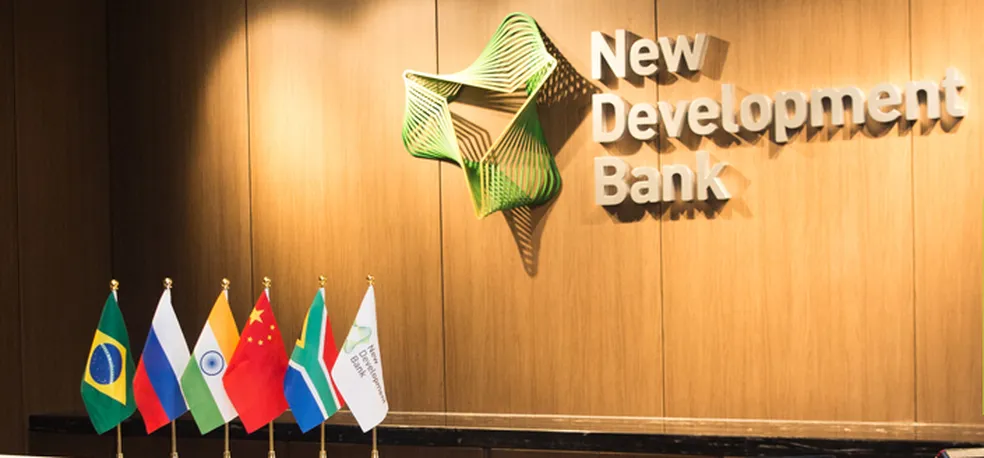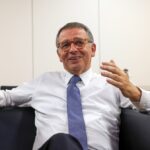
The Indonesian government confirmed on Tuesday, its adhesion as a full member of the New Development Bank (NDB), a financial institution created by the founding countries of BRICS-Brazil, Russia, India, China and South Africa.
The decision was officially ratified by Indonesian authorities in Jakarta, consolidating the participation of the Asian country in the multilateral bank.
With the adhesion, Indonesia becomes the latest member of the organization, which since 2025 has accepted new members.
In addition to Southeast Asia, other states were already part of the bank: Egypt, Ethiopia, Iran and United Arab Emirates. The NDB, based in Shanghai, has the mission of funding infrastructure and sustainable development projects in emerging and developing economies.
The president of the bank, Dilma Rousseff, former chief of the Brazilian executive, was in the Indonesian capital for meetings with local authorities.
During a meeting with Indonesia president, Prabowo subiarly, the country’s participation in the financial institution was discussed, as well as the possibilities of bilateral cooperation within the bank.
According to information released by the Indonesian government, President Prabowo expressed interest in using the mechanisms offered by the NDB to support development policies.
“We have shown our commitment to strengthen the role of NDB as a strategic partner for developing countries,” the head of state said during the meeting with Dilma Rousseff.
Indonesia’s entry marks an expansion of the NDB performance, which has been undergoing an expansion process since 2023. With the entry of new members, the bank expands its governance base and diversifies its regional action, with growing presence in Asia, Africa and the Middle East.
Created formally in 2015, the New Development Bank was established by the five BRICS founding countries as an alternative to traditional financial institutions, such as the International Monetary Fund (IMF) and the World Bank.
The idea was to create a multilateral financing mechanism focused on the specific needs of developing countries, with greater flexibility in the formulation and execution of projects.
Since its founding, the NDB has approved dozens of billions of dollars in financing for infrastructure, energy, transportation, water resources, digitization and urbanization projects.
With the new composition, the bank reinforces its objective of consolidating itself as an instrument of financial support for countries that seek to expand their public and private investment capacity.
Indonesia entry occurs at a time of greater visibility of BRICS on the international scene. Together, the groups of the group represent approximately 40% of the world’s population and about 37% of global gross domestic product, calculated based on purchasing power parity.
In addition to the countries that already formally integrate the NDB as full members, other states began to compose the bloc into different categories.
Countries with associate status include Cuba, Bolivia, Belarus, Kazakhstan, Malaysia, Thailand, Uganda and Uzbekistan. New adhesions are expected to be confirmed in the next rounds of negotiation, including Nigeria, Türkiye and Algeria, which expressed formal interest in integrating the BRICS or Bank’s own structure.
The NDB expansion process has been closely monitored by the leaders of founding countries, which see the expansion as an opportunity to reinforce the representativeness of global southern countries in multilateral institutions.
President Dilma Rousseff has defended the expansion of the basis of members as an instrument to ensure greater capillarity to the bank’s actions and expand the influence of BRICS on international financial governance mechanisms.
Indonesia adhesion also occurs in the context of greater economic integration in the Indo-Pacific region. The country has one of Asia’s largest emerging economies and has sought to diversify its sources of funding for infrastructure and industrial development.
Participation in NDB is seen by local authorities as an additional tool for achieving national growth and sustainability goals.
The New Development Bank maintains regional representation in some of the member countries and plans to open new offices as the adherence of new members is consolidated.
To date, the NDB has approved more than 90 projects with a total amount of over US $ 30 billion, distributed between the founding countries and new members.
The next NDB Annual Assembly is expected to take place in the second half of 2025, expecting to announce new financial contributions, revision of statutes and eventual approval of new applications to the condition of full member.
Source: https://www.ocafezinho.com/2025/03/26/gigante-asiatico-oficializa-entrada-no-banco-dos-brics-e-amplia-composicao-do-ndb/

